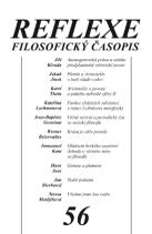Gilgamesh and Jacob
Gilgamesh and Jacob represent two worlds whose ideal perspectives are not identical. Babylonian epos and biblical prophecy have their own noetic specifications and their significant differences in content should not be underestimated. However they also have something in common: searching for life and struggling with the divine. Gilgamesh (together with his demi-mythical partner Enkidu) looks for eternal life as immortality, a beautiful afterlife. Jacob looks for eternal life as being in God (of Israel and of the entire world), life which seeps down into our mundaneness (cf. Bonhoef’s Diesseitigkeit). For both heroes, Babylonian and Israeli, we see the fight against superhuman forces, which have or can have a demonic character as well. The result of Gilgamesh’s struggle is the overcoming of Chuvava, who personified tyrannical evil in the human world. The fight against evil connects the Babylonian epos and the Old Testament. Jacob fights against himself, against his old „I“, against his religious allergies and resentments. He does not obtain an objective eternal life, but rather a blessing (beraka). The blessing shows him the path towards the future, not towards immortality. Gilgamesh conceives of eternal life as eternal bliss without transcience. But the snake steals his „Herb of Life“. Vila Siduri advises him to take pleasure in the gifts of temporal life (this almost cites the Old Testament book of Cohelet). Enkidu dies and Gilgamesh lives through the horrors of death. He returns back - to Uruk. Jacob does not return, he heads towards the future.
Backlinks: Reflexe 21
